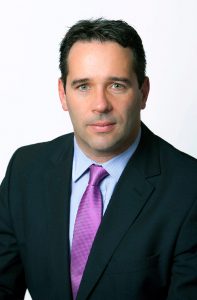Why construction company owners should drop the ‘boss’ tag and start thinking like a shareholder
A 45-minute chat could start getting your business working for you instead of the other way around, writes Brian Cox.
In my experience of working with business owners, there is a common predicament that many confront when managing their own financial affairs. They spend too much time working for the business and not enough time getting the business to work for them.
Even when turnover is accelerating, or perhaps especially when the business is profitable, there are many owners and employers who struggle to translate ‘busy-ness’ and business success into personal financial success.
Why is that? Often it boils down to sheer workload. As ‘the boss’ you routinely get dragged into staffing issues, administrative tasks, compliance and regulatory obligations, or a never-ending list of jobs and duties that consume every working day.
Hard to see the bigger picture
Yes, the business is profitable but you seem to have your hands full all the time. For many, it has become impossible to see the wood (bigger business/financial picture) for the trees (daily tasks). If this is ringing a bell, it may be time to consider putting a personal financial plan into place.
 This may sound daunting at first, but in reality it can be very straightforward, once it is approached in a structured way. Before delving into any detail, a good starting point is to ask yourself a simple question, but one that you probably don’t have time to think about very often, “What is my definition of personal financial success?.” The answer is generally twofold. For some it is about financial independence, and for others it is about the freedom to be able to make bigger decisions without worrying about money.
This may sound daunting at first, but in reality it can be very straightforward, once it is approached in a structured way. Before delving into any detail, a good starting point is to ask yourself a simple question, but one that you probably don’t have time to think about very often, “What is my definition of personal financial success?.” The answer is generally twofold. For some it is about financial independence, and for others it is about the freedom to be able to make bigger decisions without worrying about money.
So, what is standing in the way? The majority of the clients I work with simply put it down to the sheer volume of daily tasks required in running a busy construction company. This can distract from their longer-term goals of addressing important business issues. These can include decisions about how and when to exit the business, particularly in the case of a family run company, or indeed where siblings are involved. Challenges can often arise on how to handle this transition phase smoothly.
Get your shareholder cap on
These issues are too large and too complex to add to your weekly to-do list in the hope that they will get done. They require careful consideration, expert advice – and a change of mentality. You need to forget about working for your business and focus on working on your business. In other words – think like a shareholder.
As the owner of the equity in a business, you want to maximize the value of your biggest asset (i.e. the business itself). This may be to guarantee financial security, or to provide an income in retirement. You may be considering selling the business or passing it on to the next generation.
The role of a financial plan is to align your options and decisions with these long-term targets. Once your plan is in place, you can get on with the day job of being the boss knowing the cogs are turning in the background. A robust financial plan brings three main areas of focus together:
1. Lifestyle maintenance
Building up your pension fund is the simplest, most effective way of extracting the maximum amount of money from your business in order to maintain your income and lifestyle when you retire. It also removes a great deal of risk, by creating a secondary store of wealth that is invested in assets external to the business, especially for those whose family wealth may be tied up in the business.
A tailored financial plan will calculate your pension funding capacity as well as all tax reliefs available.
2. Business structuring
The purpose of a financial review is to ensure the business is structured to deliver maximum value to shareholders, no matter what stage of its lifecycle that business is at.
For example, there may be an opportunity to move from a single limited trading company to a holding company structure. This move has allowed many construction company owners to ring-fence their assets before selling the business tax-free. This is extremely advantageous for businesses with multiple shareholders.
3. Investment strategy
A tailored investment strategy will help you build a portfolio that reflects your individual circumstances (risk/return objectives, financial life goals) while avoiding the common pitfalls of having an over-concentrated investment position.
Taking all other factors into account, your financial plan will include an investment strategy that is aligned to your goals while retaining the flexibility to adapt to any changing circumstances.
How to get the ball rolling?
That word ‘flexibility’ is so important. Whether we’re looking at your investment strategy, the way your business is structured or how we approach pension funding, there is no ‘one-size-fits-all’ solution. Every business is different and unique – just like its owners.
That is the strength of a personal financial plan. It takes a holistic, 360-degree view of your current financial position, circumstances and goals in order to map out the individual actions and decisions that will help you get where you want to be.
To get the ball rolling, I suggest you take time out from the ’day job’ and schedule an initial debrief with an experienced financial adviser. It will only take approximately 45 minutes to sketch out the ‘big picture’ – After that, it is a matter of joining the dots and the detail.
Start today
This requires a conscious decision to redress the balance so that your business is working for you and not the other way around. It is a big step, but not daunting when you partner with an experienced adviser, and well worth the effort.
My final piece of advice is to get started today.
Brian Cox is a senior private client adviser with Davy. He works with construction company owners to provide best-in-class financial planning, investment management and asset selection.
Established in 1926, the Davy Group is Ireland’s leading provider of wealth management, asset management, capital markets and financial advisory services. The Davy Group is headquartered in Dublin, with offices in London, Belfast, Cork and Galway. Employing over 600 people, it offers a broad range of services to private clients, small businesses, corporations and institutional investors, and organise our activities around five interrelated business areas – Asset Management, Capital Markets, Corporate Finance, Private Clients and Research.
Please note that Davy does not provide tax or legal advice or accept liability for it. We recommend that you consider seeking tax and legal advice from professionals, with whom we are happy to engage. There are risks associated with putting any financial plan in place. The value of investments may go down as well as up. J&E Davy, trading as Davy, is regulated by the Central Bank of Ireland.
The contents of this site are subject to copyright laws and may not be reproduced in any form without the prior consent of the publishers. The views expressed in articles do not necessarily represent those of the publishers.

